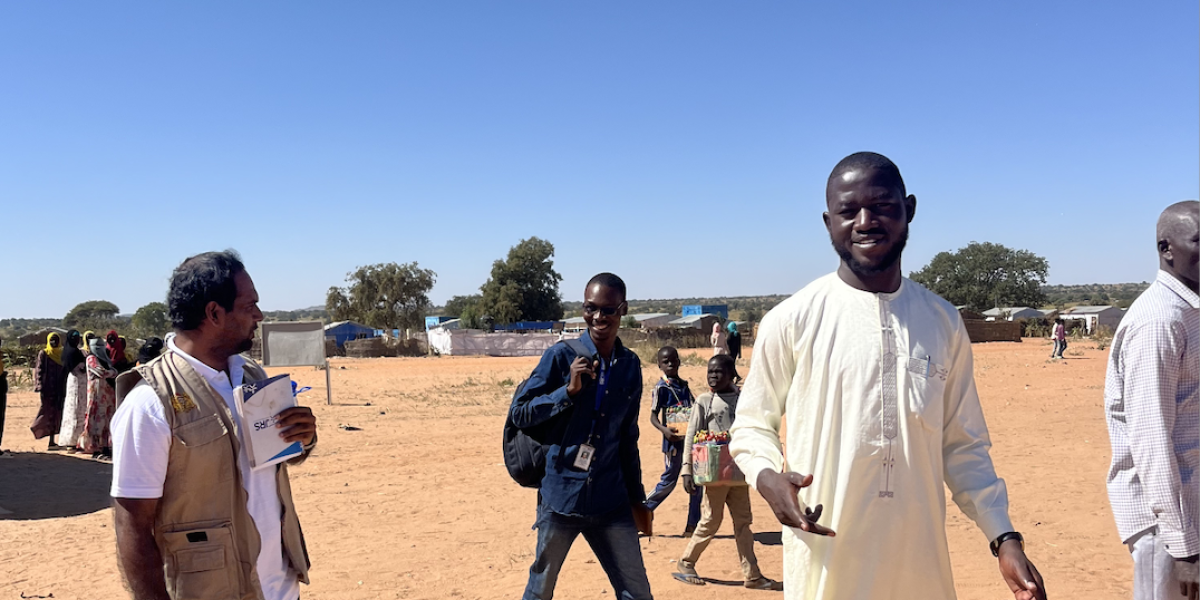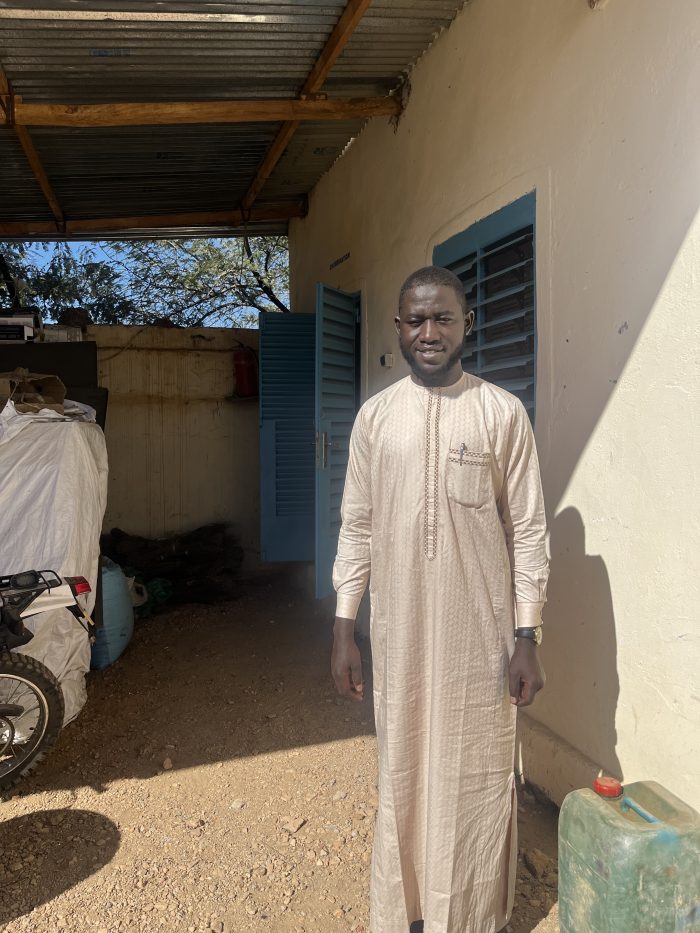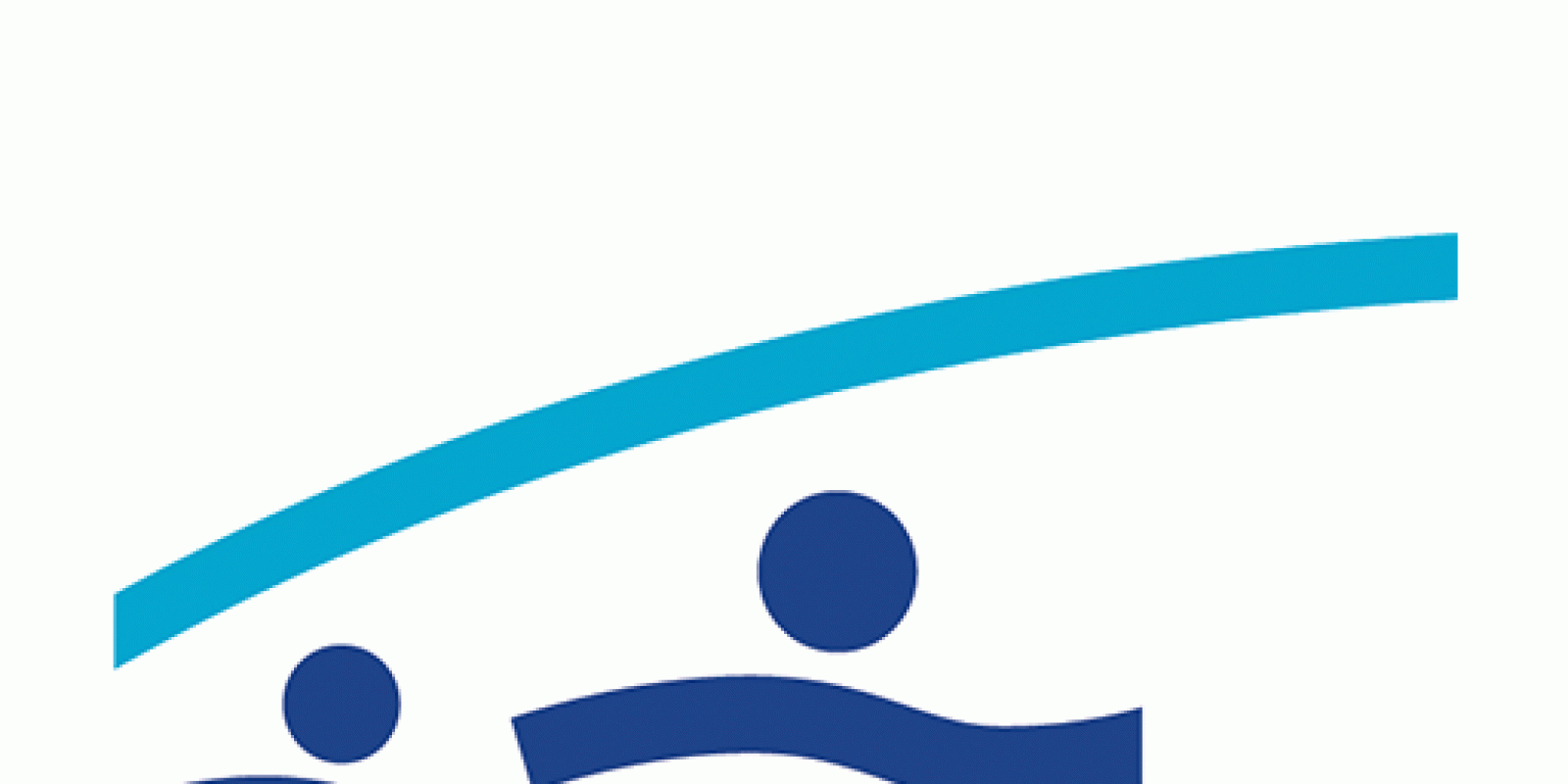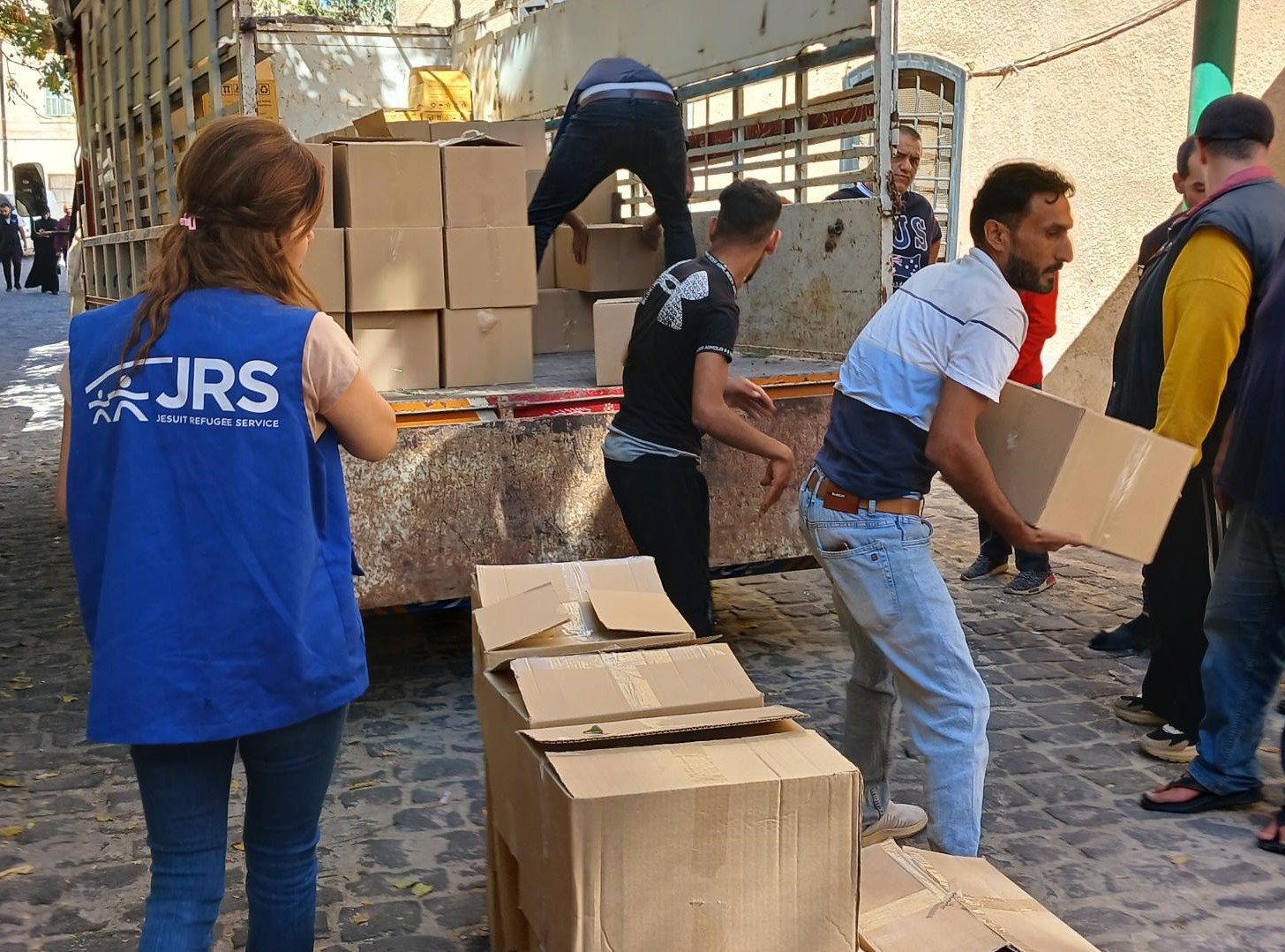Meet Tadjadine, an interpreter and Sudanese refugee giving back to his community
07 March 2025|Chloe Gunther

Tadjadine Mahamout Ahmat knows what it means to start over. At just four years old, he and his family fled Sudan, escaping the violence of the Second Sudanese Civil War. They found refuge in Chad, where Tadjadine grew up alongside the refugee community. From the moment he entered the formal education system, he was determined to build his future, one centered on education, entrepreneurship, and giving back.
Today, Tadjadine is pursuing a master’s degree in business administration while running a tutoring program for refugee students at the local university. Fluent in English, French, and Arabic, he also works as a translator for JRS and a local refugee resettlement agency. Despite his packed schedule, he made time to share his story with me.
For this month’s INSIDER, we travel to N’Djamena, Chad, to hear firsthand about Tadjadine’s generosity, determination, and journey.
Since 2006, JRS Chad has provided critical support to refugees through education programs, mental health and psychosocial support, livelihoods training, and protection programs against gender-based violence.
Tadjadine credits JRS Chad for helping him get to where he is today. “The efforts and services from JRS Chad are remarkable,” he said. “So many people have been served… I am so grateful for that.”
While in high school, Tadjadine enrolled in JRS Chad’s language learning programs. Already a native Arabic speaker, he became fluent in English and French within just a few years.
“Learning English and French changed the way I look to the future,” he said, reflecting on the doors that opened for him as a result.
With his new language skills, Tadjadine began working with the United Nations World Food Program, using social media to share refugees’ stories, particularly on issues like hunger and climate change. But it was a leadership training course with the United Nations High Commissioner for Refugees that became the pivotal next step in his career. Over six months, Tadjadine and his cohort built a platform for refugees to connect, share insights, and support one another, laying the groundwork for the community center he would later co-found with a group of friends.
With support from JRS, Tadjadine earned the prestigious Institute of International Education’s Odyssey Scholarship, which provides funding, mentorship, and community support to refugee and displaced students. The scholarship has enabled him to continue his studies by covering tuition, housing, and living expenses.
“I have received a lot of opportunities,” Tadjadine said. “Most people in my community do not get these same chances, but they deserve to.” 
In 2021, he officially co-founded the community center, which offers instruction in math, digital marketing, and computer literacy. Using a classroom at the local university, they ensure refugee students have the best chance to succeed in school.
In a full-circle moment, when JRS/USA Program Manager Rachael Davis traveled to Chad last November to visit JRS’s education programs, she met Tadjadine, not as a student, but as her interpreter.
Today, programs like those that have helped Tadjadine hang in the balance. Due to the US foreign assistance funding freeze, JRS Chad’s education programs, which have until recently been supported by the US State Department’s Bureau of Population, Refugees, and Migration, have been suspended. As Tadjadine reports, the impacts have been devastating.
In Djabal Refugee Camp, where Tadjadine and his family lived upon arriving to Chad, critical supplies like food and medicine have been delayed. JRS’s education program has come to a halt, leaving thousands of students without education and access to the opportunities it provides, particularly to get out of poverty and work in less dangerous fields than gold mining, a major source of jobs in Chad.
Through education, Tadjadine found his way forward. So now he is doing everything he can to ensure others have the same opportunities. He hopes his story will inspire young refugees to recognize their potential and pursue their dreams, no matter how difficult the road ahead may seem.


